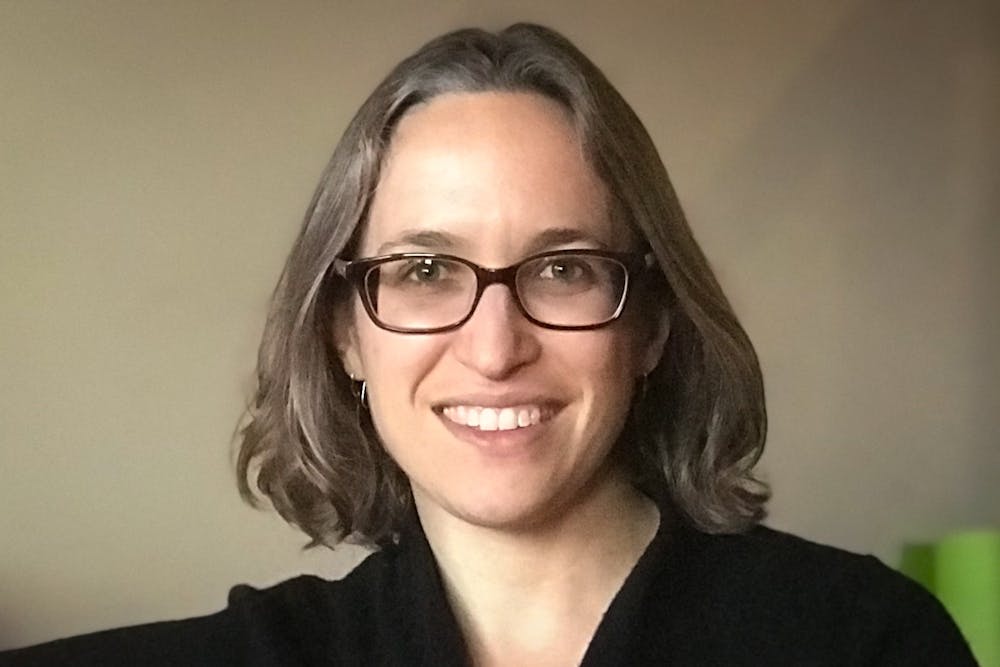
Penn professor Amy Offner won the inaugural Hunt Prize for her book on how American intervention in Latin America led to the dismantling of the United States' welfare state.
The Hunt Prize, awarded for the first time in September, is given by the Society for Historians of American Foreign Relations for the "best first book on any aspect of international or global history since the mid-19th century that makes substantial use of historical records in more than one language."
Offner's book, "Sorting out the Mixed Economy: The Rise and Fall of Welfare and Developmental States in the Americas," examines the way that the United States’ methods of developmental efforts in Latin America are connected to the right-wing justifications for dismantling the United States’ own welfare state towards the end of the twentieth century. Offner also explores the origins of neoliberalism, which she told Omnia is "the decentralization and privatization of state functions, for instance, or the creation of austere systems of social welfare provision."
For her book, which was published in September 2019, Offner conducted historical research in both Spanish and English texts and used studies of multiple countries to examine developmental and welfare history. Offner said she decided to primarily focus on the connections and exchanges between the United States welfare state and Colombia's developmental state.
“I was thinking about how I might study the transformation of the U.S. welfare state as part of the wider world process,” Offner said.
To conduct this multilingual research, Offner lived in Colombia for about a year and half. There, she was able to research alongside scholars from other countries who she said played a role in “bringing together areas of study that often are not integrated with each other."
Offner said that this method allowed her “to not just look out from the United States and try to understand, say, the perspectives of us as policymakers, but really try to put the history of the United States into the wider world.”
Between her time in the United States and Colombia, Offner conducted research in over 30 archives. Offner also told Omnia that Latin America has been an incubator for public policy experiments reminiscent of American neoliberalism.
The Hunt Prize is named for the late University of North Carolina, Chapel Hill professor Michael Hunt, whom Offner said was a significant figure in the field of the history of U.S. foreign relations.
"[Hunt] played a significant role in that field, encouraging historians to conduct international research, that is to say, to work not only in U.S. archives, but to work in the archives of other countries using foreign languages," Offner said.
Offner said one takeaway she wants her readers to gain from her book is that "we should think of the United States in non-nationalist frameworks and in non-exceptionalist frameworks." American exceptionalism is the belief that the United States is an extraordinary, or globally superior, nation.
She added that she wants readers to understand connections between the welfare and development states of the mid-twentieth century and modern neoliberalism.
"One of the things that my book does is it exposes, actually, the much longer and tangled roots of practices like austere methods of social welfare provision, state decentralization, or the private and for-profit delegation of state function,” she said.
Offner said her research surprised her and changed her understanding of twentieth-century political economy.
Offner is currently teaching HIST/LALS 174: "Capitalism, Socialism, and Crisis in the 20th Century," which she said explores many topics covered in her book.
“One of the implications of my book is that, actually, we need to think of options that are even more ambitious than the ones that were attempted in the mid-twentieth century,” Offner said.
Offner said she hopes the book will inspire people to think more expansively about how they can pursue social justice.
The Daily Pennsylvanian is an independent, student-run newspaper. Please consider making a donation to support the coverage that shapes the University. Your generosity ensures a future of strong journalism at Penn.
Donate







